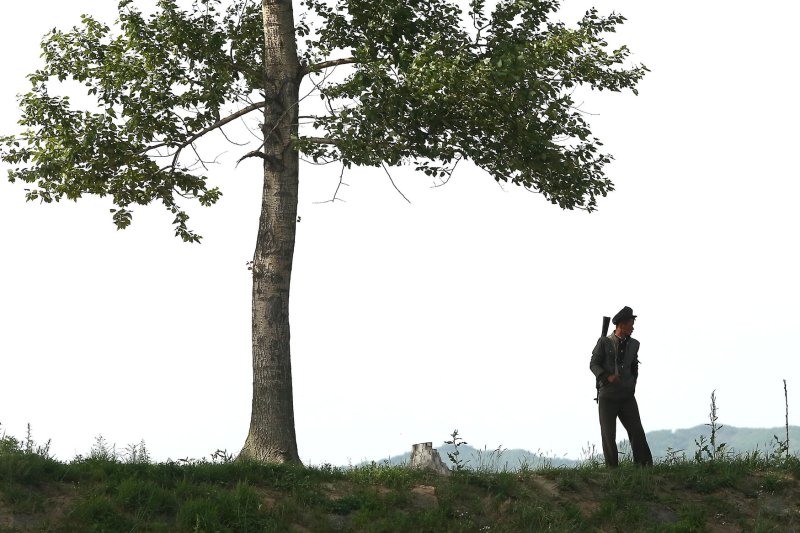A North Korea propaganda service is condemning the South for a new report on human rights, based on testimonies from defectors. File Photo by Stephen Shaver/UPI |
License Photo
May 15 (UPI) -- North Korea condemned the South on Friday for publishing an annual white paper on North Korea human rights that indicates the death penalty and political prison camps prevail in the country.
North Korean propaganda service Uriminzokkiri said Friday the white paper, published by government think tank Korea Institute for National Unification, stokes antagonism between North and South Koreans.
The annual paper was publicly disclosed for the first time since 2017, a move Pyongyang is taking notice of this week.
"This is a serious political provocation against North Korea, a country that prioritizes the dignity and rights of its people," Uriminzokkiri said. "It leads to distrust and antagonism among a unitary people [of North and South] and drives inter-Korea relations toward catastrophe."
The North Korean statement did not mention South Korean President Moon Jae-in by name but referred to him as the "South Korean ruler."
"On the outside, he says such and such things about cooperation and engages in flattery," Uriminzokkiri said, referring to Moon. "But behind the scenes, he orders his subordinates to round up the 'excrement' of North Korean defector trash."
The South Korean white paper collected evidence through interviews with 118 North Korean defectors and official documents.
In their testimonies, provided anonymously, defectors said public executions apply to North Korean citizens accused of drug trafficking, murder and even South Korean video watching.
The paper also said political prison camps continue to operate in the North, outside the official North Korean prison system.
On Friday, Uriminzokkiri claimed it is "laughable" for Seoul to address the human rights issues of other countries, when the pain of the victims of the 2014 Sewol ferry sinking and the 1980 Gwangju Uprising "have yet to be removed."
The Gwangju protests against the military dictatorship at the time are in the spotlight, ahead of its 40th anniversary on Monday.
Yonhap reported Thursday Moon urged South Koreans to reflect on the historic meaning of the pro-democracy movement.
During the nine-day uprising, South Korea's military junta beat and sometimes killed citizens, murdering 200 people and wounding another 1,800, according to South Korean analysts.















